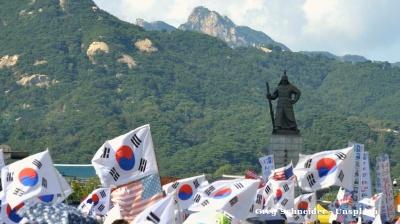An Indonesian minister’s denial of the mass rapes that occurred during the May 1998 riots has provoked fierce backlash from rights activists, survivors’ advocates, and the National Commission on Violence Against Women, Channel News Asia reports.
Culture Minister Fadli Zon drew criticism after claiming the rapes were "hearsay" and based on "rumours", sparking alarm over the government’s plan to publish a new series of history books that critics say may gloss over major human rights violations.
“What actually happened? We never truly know. Who said it was mass rape? It was all hearsay,” Fadli said in a recent podcast interview with IDN Times. His remarks were made while discussing the release of a new 10-volume national history series planned for Indonesia’s Independence Day on August 17.
Fadli’s comments directly contradict the findings of a government-sanctioned fact-finding team, which reported 85 cases of sexual violence, including 52 rapes, during the 1998 turmoil. The report was submitted to former President BJ Habibie, who publicly expressed sorrow over the atrocities.
Commissioner Dahlia Madanih of the National Commission on Violence Against Women condemned Fadli’s remarks, saying: “Denying the official findings is denying this nation’s collective efforts to seek justice. The survivors have carried this trauma silently for decades.”
The 1998 riots, driven by economic collapse and growing resentment towards President Suharto’s regime at the time, saw widespread attacks against the Chinese-Indonesian community. Many Chinese-Indonesian women were specifically targeted in acts of sexual violence.
Diyah Wara Restiyati of the Indonesian Chinese Youth Association called Fadli’s remarks "deeply hurtful", saying, “When officials claim the rapes didn’t happen, it reopens old wounds, especially for Chinese-Indonesian women.”
Jakarta councillor Fatimah Tania Nadira Alatas also criticised the minister, calling his comments unethical and a dismissal of historical pain. “These wounds cannot be erased or rewritten,” she stated on the Jakarta NasDem Party’s social media.
In response to mounting criticism, Fadli clarified that he was not denying that sexual violence occurred, but rather urging “academic and legal caution” in classifying the events as "mass rapes". He argued on platform X (formerly Twitter) that the fact-finding report lacked verified details such as names or locations, and warned that such terminology affects national dignity.
The government’s upcoming history books have drawn widespread concern. A 30-page draft reviewed by historians reportedly omits or downplays numerous human rights violations and presents a glorified view of the Suharto era.
Only two of the 17 gross rights violations recognised by the National Commission on Human Rights were included, according to Nikkei Asia. Some of the omitted events are reportedly linked to President Prabowo Subianto, who has not commented on the matter.
Prabowo, a former general and Suharto’s ex-son-in-law, has previously been accused of orchestrating the 1997–1998 abduction and torture of 22 student activists, 13 of whom remain missing. He denies involvement.
Fadli, a senior figure in Prabowo’s Gerindra party, claimed these accusations have been discredited.
Historian Asvi Warman Adam told The Jakarta Post that the new history project appears to sanitise the past, while a coalition known as the Indonesian Historical Transparency Alliance called it a “deliberate effort to engineer the past”.
The House of Representatives' Commission X, which oversees education and culture, has pledged to meet with the Culture Ministry. Chairwoman Hetifah Sjaifudian vowed to push for the removal of the "official" label from the books to ensure historical discourse remains open.
Features

South Korea’s tax reform triggers investor concerns
What was once a buoyant rally under President Lee Jae Myung’s pledge to lift the Kospi to 5,000 points is now shadowed by concerns over the economic implications of sweeping tax changes.

A year on from Sheikh Hasina’s flight into exile, Bangladesh waits for stability
A year and a day after Sheikh Hasina’s dramatic departure, Bangladesh remains – still - in the throes of a fraught transition. The interim government, though promising, is yet to deliver meaningful reform.

UN accused of enabling Hamas through Gaza aid mismanagement
There are also persistent claims that Hamas is systematically looting the aid that does make it into Gaza. Military officials estimate 80% of all assistance is intercepted either by Hamas members, its affiliates or civilians acting under its control.

The silent crisis: Abortion and reproductive rights in Turkmenistan
Turkmen women today are worse off than their grandmothers.




